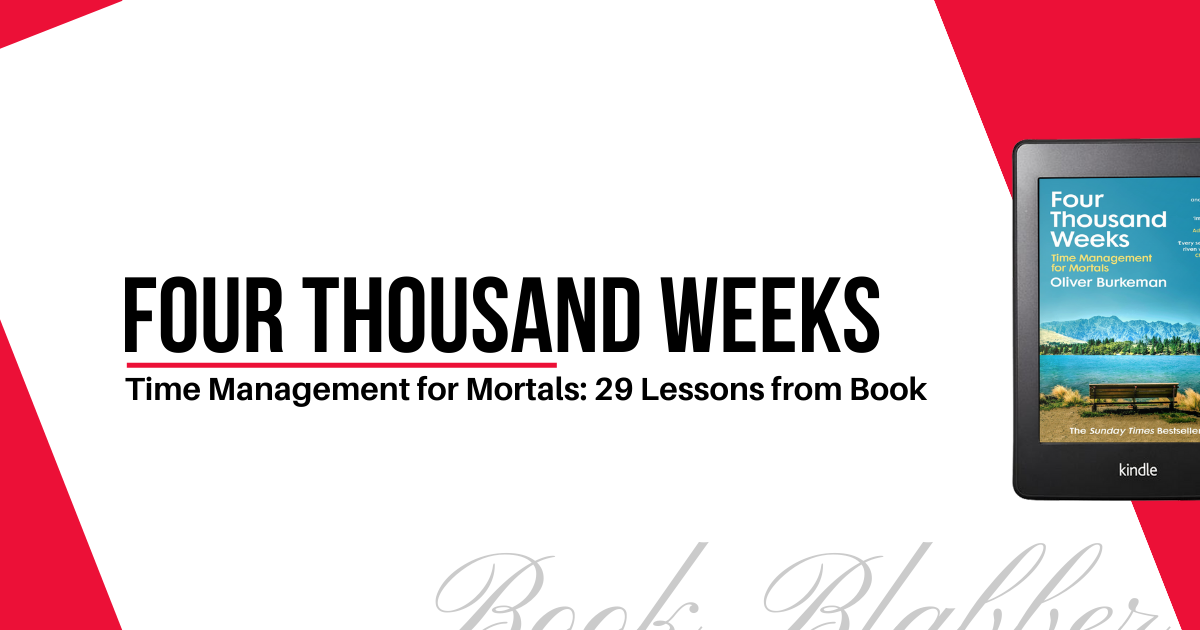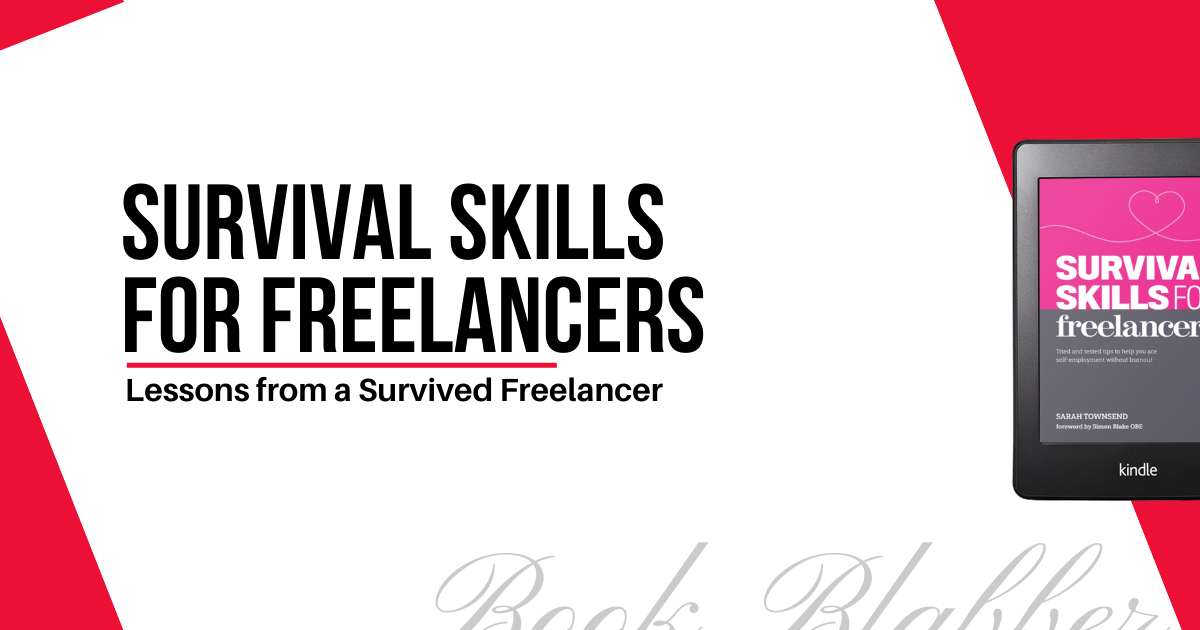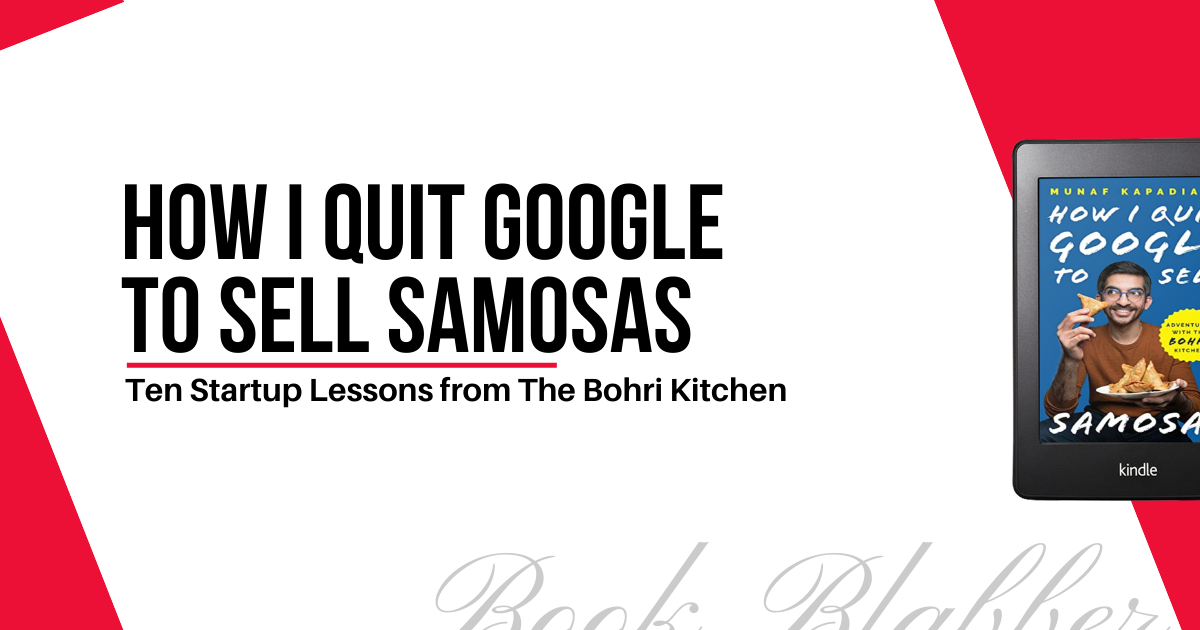Time Management for Mortals: 29 Lessons from Four Thousand Weeks Book

I picked Four Thousand Weeks book earlier this month to understand how to make the most of my limited time on earth. And here I’m listing the lessons from this Four Thousand Weeks book. It changed my perspective on time management. Check my Four Thousand Weeks book review
Four Thousand Weeks: Time Management for Mortals is a fascinating time management book. It isn’t really on time management but on philosophy.
Check Four Thousand Weeks on Goodreads
It’s a good book on time management. It's about using your time more mindfully to live a more fulfilling life.
Now, let’s check out the Four Thousand Weeks quotes and lessons.
Introduction
1) Most productivity experts act merely as enablers of our time troubles, by offering ways to keep on believing it might be possible to get everything done.
2) For years now, we’ve been deluged with advice on living the fully optimized life.

3) In reality, “hustle” is a problem, pushed to an extreme: the pressure to fit ever-increasing quantities of activity into a stubbornly nonincreasing quantity of daily time.
4) The problem with time management techniques and products isn’t that these don’t work. It’s that they do work – you’ll get more done – and yet, you only feel busier, more anxious, and somehow emptier as a result.

5) When people make enough money to meet their needs, they just find new things to need and new lifestyles to aspire to.
6) It’s only by facing our finitude that we can step into a truly authentic relationship with life.
Choosing to Choose
7) The real problem isn’t our limited time. The real problem is that we’ve unwittingly inherited, and feel pressured to live by, a troublesome set of ideas about how to use our limited time.
8) Before timetables, people generally didn’t experience time as an abstract entity, as a thing. There was no need to think of time as something abstract and separate from life: you milked the cows when they needed milking and harvested the crops when it was harvesting time.

9) Our modern way of thinking about time has made us a proverbial fish who has no idea what water is, because it surrounds it completely.
10) The world provides an inexhaustible supply of things that seem worth doing. And so, arises an unbridgeable gap between what you’d like to do and what you actually can do.
11) Adopt an ultra-ambitious time management system, and you won’t even get around to the most important items on the list. Because doing anything requires sacrifice – the sacrifice of all the other things you could have been doing with that stretch of time.

12) The core challenge of managing our limited time isn’t about how to get everything done. It’s how to decide most wisely what not to do, and how to feel at peace about not doing it. It’s just that there are too many important things to do.
13) Limit your work in progress. The way to find peaceful absorption isn’t to chase feelings of peace or absorption, but to acknowledge the discomfort.
14) Make a list of the top 25 things you want out of life and arrange them in order, from the most important to the least. Pick the top five to organize your time around. Avoid the others at all costs.
15) You kill time on the internet just because it makes you feel unconstrained. It dulls the pain of finitude.

Beyond Control
16) Even if you know that a given project is likely to overrun, and you adjust your schedule accordingly, it’ll still overrun your new estimated finishing time. So, to give yourself twice as long as you think you’ll need could make matters worse.
17) We never have time in the same sense that we have the cash in our wallets. When we claim that we have time, what we really mean is that we expect it.

18) A plan is just a thought. All a plan is a present-moment statement of intent. The future, of course, is under no obligation to comply.
19) If you stop expecting certainty that things will go your way, you’ll be liberated from anxiety. The source of the anxiety is the need to be able to know that those efforts will prove successful.

20) The more you focus on using time well, the more each day begins to feel like something you have to get through to a more fulfilling point in the future. You find yourself living mentally in the future.
21) Unfortunately, trying to have the most intense possible present-moment experience is a sure-fire way to fail. You’re so trying to make the best use of your time that it obscures the experience itself. It’s like trying too hard to fall asleep, and therefore failing.

22) Living fully in the present is simply a matter of finally realizing that you never had any other option but to be here now.
23) Be willing to stop when your daily time is up, even when you’re bursting with energy and feel as though you could get much more done.
24) It’s a principle common to all productivity advice that the only person making decisions about your time would be you. But this control comes at a cost.
25) Every gain in personal freedom entails a corresponding loss in how easy it is to coordinate your time with other people’s. We do have the time – but there’s almost no likelihood of it being the same portion of time for everyone involved.
26) What people need isn’t greater individual control over their schedules but rather “the social regulation of time.” It’s an outside pressure for everyone to use their time in particular ways.
27) We don’t get or have time at all… instead we are time. We are nothing but the moments. Now is all you ever get.

28) To hope for a given outcome is to place your faith in something outside yourself, and outside the current moment. Embracing your limits means giving up hope.
29) Quietly do the next and most necessary thing. It’s all that any of us can ever aspire to do in any moment.
4 Thousand Weeks book is a pragmatic book about time management. These Four Thousand Weeks lessons only scrap the surface of what’s inside.
Liked these lessons?
Join Book Blabbers WhatsApp group to bond over books, memes and quotes.
Subscribe to Book Blabber's Bulletin to get book summaries, reading tips and occasional hugs in your inbox.





Comments